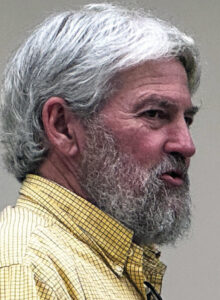The Ten Commandments
By By Donald Dunnam / special to The Star
Aug. 30, 2003
Thomas Jefferson's second inaugural address on March 4, 1805, said, that in matters of religion he had considered that its free exercise is placed by the Constitution independent of the powers of the General Government. He took no occasion to prescribe the religious exercises suited to it, but left them, as the Constitution found them, under the direction and discipline of the church or state authorities acknowledged by the several religious societies.
There is no doubt that the founders placed these matters securely in the hands of the state, and denied the federal government the right to even
comment on it.
We are told we must follow the rule of law. As I recall from my history, that is not what we told the Germans from the concentration camps. We held
them to a personal standard, as we do in the military, that when you receive an order that you know to be unlawful you are duty bound to disobey.
Disobeying unlawful orders is a duty of all citizens. When Judge Moore refused the unlawful order to remove the monument, he was actually upholding the law.
The idea that the 14th amendment somehow strips the right of the 10th amendment away can be shown easily to be false. After the Civil War all secessionist state constitutions were reviewed. Mississippi's (1891) was approved well after the passage of the (1868) 14th amendment.
Not only was the reference in the Preamble to God remaining, Article 3 Section 18, which guarantees the right of the Holy Bible to forever be in our public schools remained intact.
Since the very ones who passed the 14th amendment also reviewed the state constitutions, then any assumption that they intended to remove religion from the states is false.
Donald Dunnam lives in Quitman.








